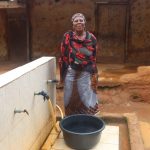DUKKU, GOMBE STATE: In 2019, Aliya Yunusa got admission to study Pharmacy at Gombe State University. When she lodged into her hostel room, she met three other young girls who were final-year students and hail from diverse communities.
Yunusa found them to be accommodating, and in a few weeks, they introduced her to using skin-lightening creams, convincing her that her dark skin wasn’t compelling. Yunusa was told by her new friends that the fairer she looks, the more pretty she is.
At first, she didn’t agree, but gradually, she started feeling uncomfortable whenever she walked around the university environment and saw her colleagues. She was teased for looking different.
Yunusa went on to develop low self-esteem and later joined the girls in using different lightening creams like Caro White, Caro Tone, Peau Claire, and Dodo skin gold.
It was exciting for her to use the creams and watch her skin colour change.
She also felt it was the best way to draw men’s attention. “That time, I felt I had also arrived. I can then call myself a woman,” she said.
The creams had worked as expected, but she got more than she bargained for.
Some months later, she began to notice rashes on her face, and every day, it kept getting worse, so much so that when she went out, people would ask what was wrong with her face.
“They kept asking me what’s wrong, that a certain hole in my skin is dark while the other one is not,” she said.
It was after her roommates had graduated and she returned home for the session break that her family also noticed it, and the pressure became too much for her.
“Everyone was complaining, I couldn’t withstand the pressure. So I promised them that I would stop using lightening creams since they have side effects,” Yunusa told Prime Progress.
However, even with efforts to reverse the effects, Yunusa still struggled to regain her original complexion. After consulting a doctor at the Federal Teaching Hospital of the university, drugs and medicated creams were prescribed for her.
“That was how I got to manage the sunburn and the rashes on my face,” Yunusa said.
Yunusa said she realised that all that is expected of her is to be proud of her natural skin, as advised by Nana Abdullahi, a friend she met recently.
21-year-old Nana Abdullahi, who is also pursuing a degree in Biology at the Gombe State University, had been called names by her coursemates for being dark-skinned and was also told to start using lightening creams.
But unlike Abdullahi, she never gave in but continued to be proud of her natural skin.
Many times, Abdullahi said she nearly bought the skin-lightening products, but a voice inside her would say: “Cherish the colour of your skin as dark as it is and feel good walking anywhere,” she said.
There are dangers
A World Health Organisation or WHO study in 2018 found that 77% of Nigerian women are using skin-lightening creams, the highest in Africa.
The use of such creams has health consequences that put victims at risk of contracting life-threatening diseases, Muhammad Kyari, a medical practitioner at the University of Maiduguri Teaching Hospital, said.
Kyari said clean bleaching doesn’t only cause skin dryness and pimples on the face. “It is also likely going to result in serious conditions like eczema, blood cancer, as well as kidney and liver problems due to the amount of mercury present in the products,” he told Prime Progress.
Kyari added that using such products may change the colour of the skin, but excessive use of it is toxic and poses long-term effects that are difficult to handle.
Despite the dangers, Fa’iza Dahiru, a student of the Department of Botany at Gombe State University, said skin bleach isn’t something she can stop anytime soon. “I see it as another way to improve my beauty as a woman. Looking good should be our priority,” the 22-year-old Tahir told Prime Progress.
In 2019, Aliya Yunusa started her Pharmacy studies at Gombe State University and quickly became friends with her final-year roommates. They introduced her to skin-lightening creams, convincing her that lighter skin was more attractive. Initially reluctant, Yunusa eventually succumbed to peer pressure and started using products like Caro White and Peau Claire. This led to excitement but soon resulted in severe skin rashes and low self-esteem. Her family and a doctor helped her manage the adverse effects, but she struggled to regain her natural complexion.
On the other hand, Nana Abdullahi, a fellow student also teased for her dark skin, refused to use such products and remained proud of her natural complexion. A 2018 WHO study revealed that 77% of Nigerian women use skin-lightening creams, posing significant health risks including eczema, blood cancer, and kidney and liver issues due to mercury content.
Despite these dangers, some, like Fa’iza Dahiru, a Botany student, continue to use skin-bleaching products to enhance their beauty. Medical experts warn that excessive use of these products is toxic and has long-term harmful effects.






